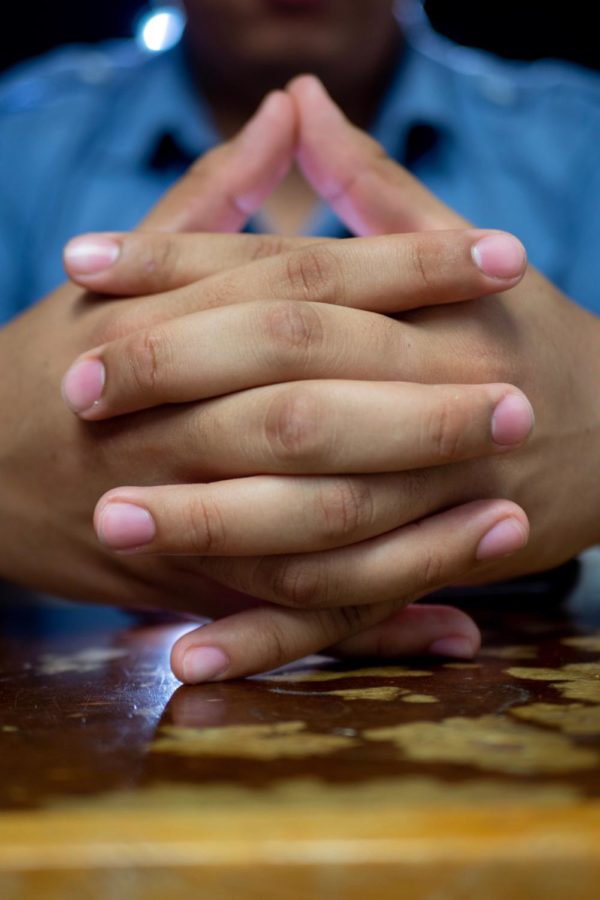“Aaron”
May 14, 2019
An SRJC engineering major who wishes to remain anonymous, “Aaron” is an undocumented immigrant who was brought to the U.S. when he was 1 year old. He lived with his two parents and two younger siblings in Cotati for his first four years in the U.S.; now he and his family live in Petaluma.
Growing up, Aaron was anxious about his undocumented status, a familiar feeling for many immigrants.
“Out there in society, there really is a curtain that you can’t tell people you’re undocumented because of embarrassment and fear,” he said.
While attending Casa Grande High School, he was accepted into the DACA program, which relieved some of his fear of being identified and deported and allowed Aaron to work and go to school legally.
“I really believe that DACA is going to change something and help me,” Aaron said.
He also looks to SRJC for support. Its English as a second language classes, EOPS programs and clubs, including MEChA, are a vital part of the community the college provides for undocumented students.
“I feel safe at the JC,” Aaron said. “I don’t feel discriminated for being undocumented.”
But off-campus is a different story. Last spring, Aaron boarded his first flight for a spring break trip with friends. While passing through the Transportation Security Administration (TSA) checkpoint, Aaron was stopped
for an extended period of time because his documentation differed from an American citizen’s.
Aaron knew his DACA status allowed him to travel legally within the U.S., but he couldn’t shake the feeling something bad was going to happen.
“I was super scared when I went through TSA,” he said. “Even though I was OK to travel, I still had that fear of being deported.”
He looks forward to the day he can travel outside the U.S., too, without fear of being denied reentry. This would require Aaron attain formal U.S. residency, a status that might also help him sort out his identity.
“I live in two worlds,” Aaron said. “In the American world, I am not welcome. I don’t have freedom, and I’m somewhat like a prisoner.” But he doesn’t feel welcome in the Mexican world either, and, even worse, he feels his Mexican heritage has made it harder to fully assimilate into American culture.
His identity struggles aren’t limited to his nationality or ethnicity. He feels he is breaking the law just for living in a place that’s been his home his whole life.
“I just want the freedom to not be a criminal, because I just realized undocumented means criminal,” Aaron said. “I don’t want to be a criminal.”
For now, he finds peace attending the JC and knowing he lives in one of the most accepting states in the country.
“I accept being Californian, and I’m happy with it,” he said. “I’m happy that I don’t identify as American or Mexican.”
